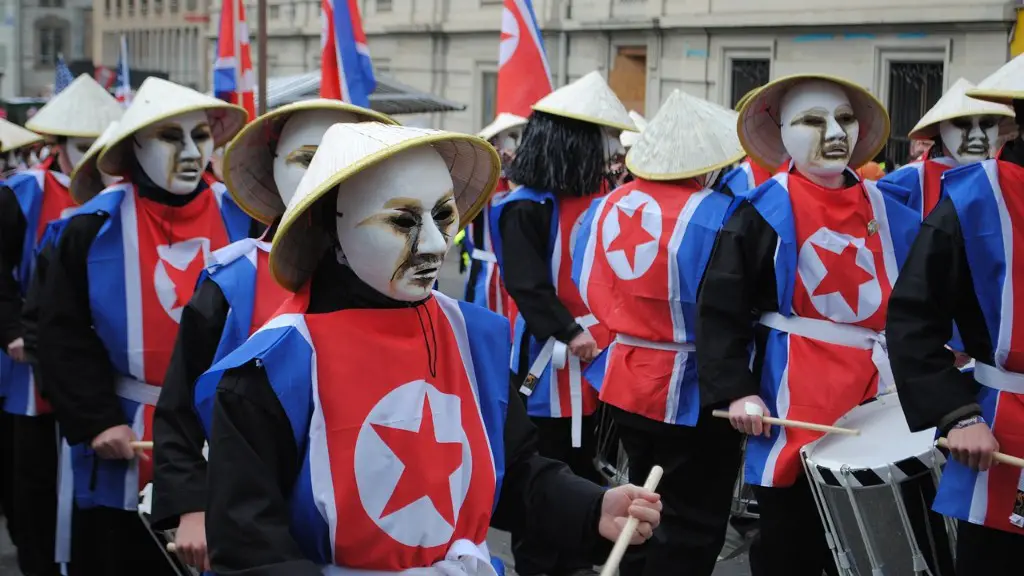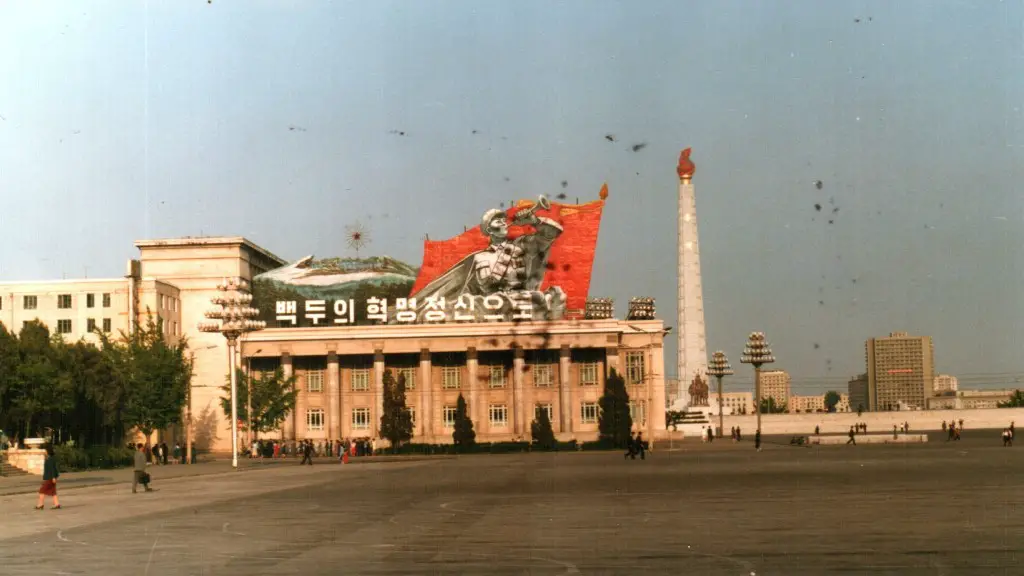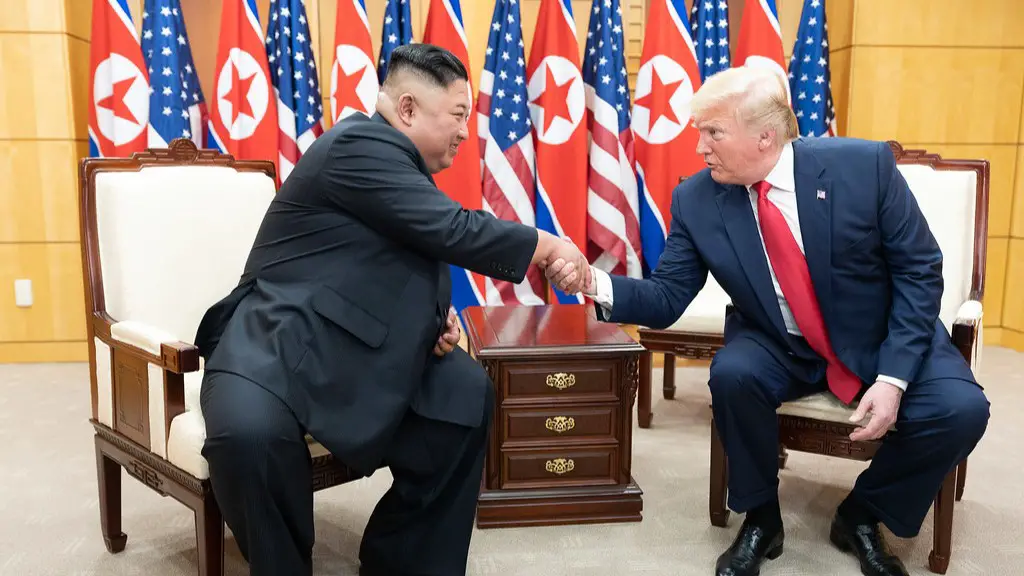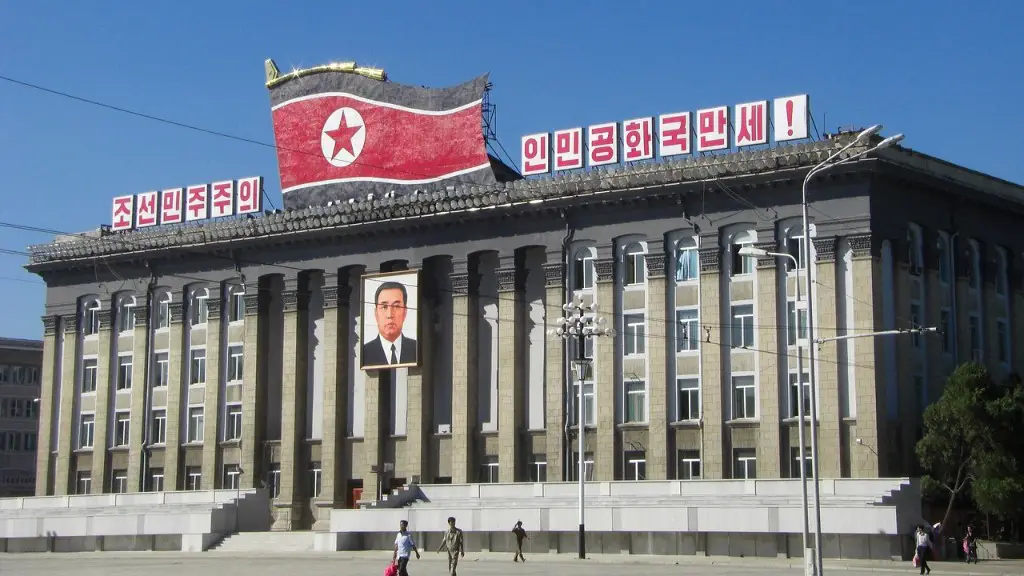Nuclear Deterrence
The current conflict between the US and North Korea is complex, multifaceted and potentially dangerous. For years, the US and its allies have been engaged in a tense stand-off with North Korea, which has built up an increasingly robust nuclear weapons arsenal and regularly launched missiles into international waters. North Korea has shown that it is unafraid to use its weapons, which puts the US and its allies at risk. This has raised the question of whether the US can successfully engage North Korea and effectively prevent a nuclear war.
At the heart of the US-North Korea standoff is the idea of deterrence, which suggests that one country can convince another to back down or refrain from conflict by threatening to take strong, punitive action. For years, the US has employed deterrence strategies against North Korea. This has included expanding economic sanctions and military exercises in the region, as well as offering diplomatic overtures.
However, deterrence is an imperfect tool. North Korea is an unpredictable and dangerous regime, and its leader Kim Jong Un is unpredictable. This means that even if the US and its allies use the strongest possible deterrent measures, there is no guarantee that they will be successful. Furthermore, North Korea’s nuclear weapons arsenal complicates the situation even further, as it raises the stakes and makes it more likely that military action could be taken.
To make matters worse, North Korea is slowly becoming more closely integrated with the global economy. This could lead to greater international support for the regime, making it even more difficult for the US and its allies to effectively contain and deter North Korea. Additionally, North Korea has been making tremendous strides in its nuclear weapons program. It has successfully tested missiles that could reach US territory, and recently unveiled its newest intercontinental ballistic missile, which may be capable of reaching any area in the US.
Given the complexities of the situation, it is clear that the US cannot take on North Korea alone. It is essential that the international community come together to support the US’s efforts to contain and deter North Korea. In particular, it is important that countries like China and Russia join together with the US to put pressure on North Korea, as they have the most influence over the country.
At the same time, it is important that the US takes a measured approach. While it is necessary to maintain a strong deterrent posture, it is important to remember that military conflict with North Korea could have catastrophic consequences. Therefore, the US should only engage in military action if its allies are willing to join in and help mitigate the risk. This will ensure that North Korea does not become even more hostile and that it understands the potential consequences.
Diplomatic Engagement
In addition to pursuing deterrence strategies, the US should also focus on engaging with North Korea diplomatically. This can be accomplished through direct talks between the US and North Korea, as well as through multilateral agreements between the US, North Korea and its allies. This could potentially lead to an agreement that restricts North Korea’s nuclear activities in exchange for economic aid and diplomatic recognition.
Diplomatic engagement is not only important for the US and its allies, but also for North Korea. It is important to remember that the North Korean government is not a monolith, and that there are leaders who are open to negotiation and compromise. Therefore, diplomatic engagement could be useful in breaking the cycle of deadlock and allowing the US and its allies to make some progress in addressing the crisis.
It is also important to note that, while direct talks and engagement are essential, they should not be the only approach used to address the North Korean crisis. In particular, it is essential for the US and its allies to maintain a strong defense posture, as well as to pursue preventive action against North Korea’s weapons programs. This could involve expanding economic and travel sanctions, increasing intelligence efforts, and engaging in military exercises and deployments in the region.
By engaging in a combination of diplomatic and military actions, the US and its allies can ensure that North Korea does not become a true threat. This approach could also facilitate a more stable engagement with North Korea and create space for potential negotiations in the future.
Sanctions
The US and its allies have been pursuing sanctions against North Korea for years, and they are the most effective way to pressure the regime into changing its behavior. Sanctions target North Korea’s international transactions by imposing restrictions on the sale of goods and services to North Korea, as well as cutting off North Korea’s access to international financial systems. This makes it more difficult for North Korea to trade and obtain the resources it needs to sustain its economy.
The US and its allies have imposed several rounds of sanctions against North Korea, but so far they have not been successful in changing the regime’s behavior. That said, it is important to remember that these sanctions are a long-term strategy, and they could eventually convince North Korea to change its behavior. Additionally, the sanctions may also provide the US and its allies with leverage that could be used in negotiations.
At the same time, it is important to remember that the sanctions should not be the only tool used to pressure North Korea. Sanctions alone will not be enough to convince North Korea to abandon its nuclear weapons program, and the US and its allies must be willing to use diplomatic and military options in order to make progress.
International Cooperation
In order for the US to successfully take on North Korea, it is essential that it works with other countries in the region. This includes countries like China and Japan, which have been strong allies of the US, as well as countries like Russia, which often oppose US policies. In particular, the US must be willing to work with China, as it has the most influence over North Korea.
At the same time, it is important that the US takes a measured approach when dealing with North Korea and its allies. It is essential that the US engages in dialogue and ensures that all sides understand the risks of conflict. Furthermore, the US should be willing to make compromises in order to build trust and facilitate cooperation between the two countries.
It is also important to remember that, while international cooperation is important, it will not be enough to resolve the situation. The US and its allies must also be willing to employ other strategies in order to address the North Korean crisis. This could involve expanding economic sanctions, pursuing diplomatic talks and engaging in military exercises in the region.
China’s Role
China has long been a major player in the US-North Korea conflict, and it has been willing to use its influence to try and contain North Korea’s nuclear ambitions. China’s approach has been twofold: first, it has supported the US and its allies’ efforts to pressure North Korea; second, it has attempted to engage the North Korean regime in negotiations. China has also been willing to offer economic aid to North Korea in order to convince it to abandon its nuclear weapons program.
While China is a key player in the North Korea crisis, it is important to remember that its ultimate goal is not to disarm North Korea, but to ensure that the regime remains in power. This means that China has an incentive to maintain stability in the region and to prevent a conflict from escalating. At the same time, it is essential for the US and its allies to remain vigilant and ensure that China does not exploit its influence to pursue its own agenda.
It is also important to note that China is not the only international player in the US-North Korea conflict. Russia and Japan also have significant influence in the region and must play an important role in any resolution to the crisis. Ultimately, the US and its allies must build a coalition of international support in order to effectively contain and deter North Korea.
Military Action
While the US and its allies should pursue diplomatic and economic options first, there may still be a need for military action if North Korea continues to pursue its nuclear ambitions. However, military action should be used as a last resort and should only be taken after all other options have been exhausted. It is important to remember that military action carries with it the risk of escalating the conflict, and it could potentially have catastrophic consequences.
When considering military action, the US and its allies must be conscious of the risk of collateral damage. Any military action must be targeted and designed to minimize civilian casualties. Furthermore, the US must ensure that North Korea is given the opportunity to accept a diplomatic solution, as it is essential to maintain the support of the international community.
It is also essential that the US and its allies be prepared for retaliation from North Korea and other countries in the region. This could include cyberattacks, as well as missile launches or other forms of aggression. It is essential that the US and its allies have the means to respond and protect themselves in the event of an attack.
Conclusion
The US and its allies face a difficult challenge in dealing with North Korea. It is essential that the US and its allies be willing to use all available tools, including deterrence, diplomacy, sanctions, and military action in order to successfully contain and deter North Korea. At the same time, it is essential to remember that military action should be viewed as a last resort, and that the US must be prepared to counter any retaliatory measures. In order to effectively contain and deter North Korea, it is essential that the US and its allies build a coalition of international support and engage in multilateral efforts.





